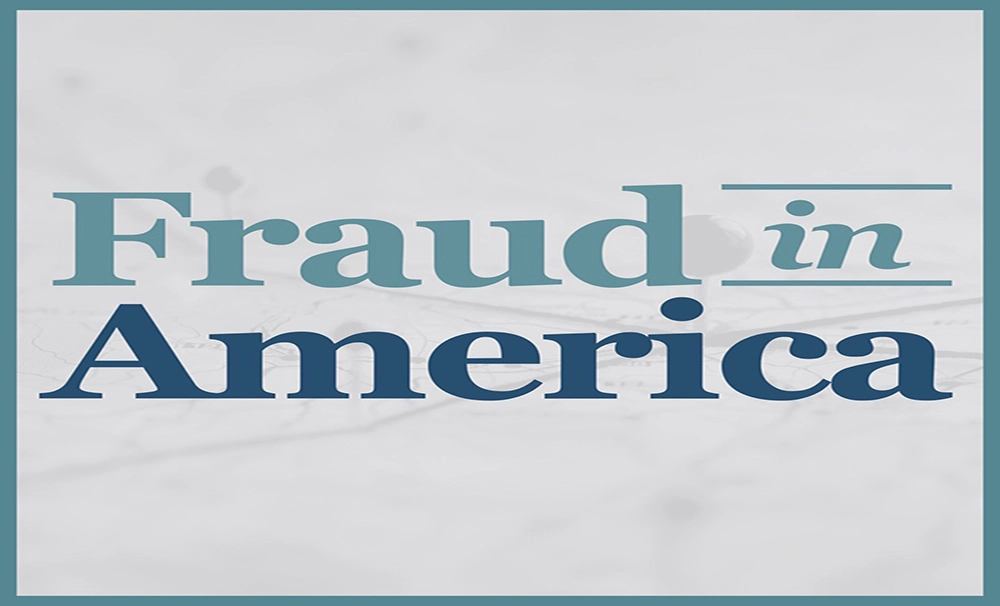False Claims / Whistleblower Law
Overview
CPM is one of the most successful and well-respected whistleblower law firms in the country. CPM represents individuals who have been retaliated against by their employers for raising ethical or legal concerns, and individuals who want to report corporate fraud that results in the waste of taxpayer money.
The primary law CPM uses to assist whistleblowers is the federal False Claims Act. Congress passed the False Claims Act in the midst of our nation’s Civil War, when scams against the Union Army ran rampant, including opportunists who sold sick mules and spoiled food to troops at war. Because of its origin, the False Claims Act is still often referred to today as “Lincoln’s Law.”
The False Claims Act cases CPM handles are as varied as the thousands of ways in which taxpayer dollars are spent. There is not a single industry in the United States in which the government does not pay money to private companies for goods or services. In healthcare, the Medicare and Medicaid programs make up almost half of all payments to doctors, hospitals, and other providers of medical services and goods. In the defense industry, hundreds of billions of dollars of government money are paid to private contractors every year, both domestically and overseas. But government spending spreads far beyond healthcare and defense.
The government spends billions of dollars every year on everything from toilet paper and hand soap, to computers, extension cords and software, and everything in between. The government also supports many industries through subsidies, loans (student loans, for example), and guarantees (of many home mortgages, for example).
Taxpayer money is, quite literally, everywhere. And anywhere there is government money, there are companies and individuals willing to cheat, lie, and cut corners to unfairly get a greater share of that money.
Through the False Claims Act and related laws, CPM has recovered hundreds of millions of dollars for taxpayers, and significant rewards for its clients.
For more information, or to discuss a potential legal matter, please follow up with Niall McCarthy or Nazy Fahimi.
The following examples of CPM's recent False Claims Act cases highlight the diversity of industries and sub-industries in which these cases arise:
- Oil company BP paid $102 million to California taxpayers in a case under the California False Claims Act alleging that the company overcharged the State of California on purchases of natural gas. The case was brought on behalf of a terminated employee, Christopher Schroen.
- Marinello Schools of Beauty paid $11 million in a qui tam action filed by six whistleblowers, former employees of Marinello. Marinello was accused of fraudulently obtaining federal student loan funds. Based on overlapping allegations, the United States Department of Education forced Marinello to close its doors. Prior to its closure, Marinello was one of the largest chains of for-profit beauty schools in the United States.
- Software company VMware, Inc., paid $75.5 million in a qui tam suit alleging misrepresentations to the federal General Services Administration (GSA). The case alleged that VMware failed to provide government purchasers with the same generous discounts provided to non-government purchasers. The whistleblower was a former employee.
- Diagnostic Laboratories, Inc., the largest provider of laboratory and x-ray services to nursing homes on the West Coast, paid $19.4 million to settle claims brought by two former employees under the False Claims Act. The case alleged that the company provided discounts to clients as a kickback to induce Medicare and Medi-Cal referrals.
- Quest Diagnostics, Laboratory Corporation of America, and other laboratories paid over $300 million to the State of California under the California False Claims Act for allegedly violating California’s Medi-Cal low-price rules, which require Medi-Cal providers to give Medi-Cal the best prices that they offer any customer.
- Vitas Hospice Services paid $75 million to the United States to settle False Claims Act cases filed by several nurses and a physician who worked at the company. The case alleged that Vitas routinely placed and kept patients on hospice who did not have a terminal illness. As a result, Vitas billed Medicare tens of millions in taxpayer dollars for services that were not appropriate.
Please review these links for further information about the various whistleblower laws and cases that CPM handles, and contact us if you think you may have a potential case.
Noteworthy Cases
Noteworthy Cases
State of California v. BP: Natural Gas Overcharge Qui Tam
In 2018, CPM settled a whistleblower case against BP (formerly British Petroleum) that accused the oil company of massive overcharging of California cities, counties, universities, and government agencies on purchases of natural gas over the course of a decade. Under the settlement, BP paid $102 million. It was the largest whistleblower settlement in California history involving an oil company. A four-week jury trial was set to begin the week of the settlement in San Francisco. The lawsuit against BP was filed in July 2012 by a former-employee of BP, Christopher Schroen, under the California False Claims Act. The California Attorney General’s Office joined the case in November 2014. CPM attorneys Niall P. McCarthy and Justin T. Berger were awarded the prestigious CLAY Award for their work on the case.
Quest Diagnostics Litigation
State of California ex rel. Hunter Laboratories v. Quest Diagnostics, Inc., et al., Sacramento County Superior Court
CPM represented a whistleblower, Chris Riedel, who owned a small lab company, Hunter Laboratories of Campbell, California. CPM filed a qui tam action in 2005. The California Attorney General’s office joined the case in late 2008. The lawsuit alleged that, despite state law requiring that California’s Medi-Cal program receive the lowest price for lab services, Quest Diagnostics, the largest lab in California, and LabCorp, the second largest, routinely billed California prices far above what it was charging others. The case settled in 2011, recovering $301 million in taxpayer money from the lab defendants, including $241 million from Quest Diagnostics, Inc. The $241 million settlement was the largest false claims act recovery in California history, and the largest single-state False Claims Act settlement ever in United States history.
Laboratory Kickback Case
United States ex rel. Riedel v. Boston Heart Diagnostics
In a major victory for taxpayers, CPM reached a $28 million settlement of whistleblower allegations with Boston Heart Diagnostics, a clinical medical laboratory that focuses on tests related to cardiovascular disease. The settlement resolves two separate lawsuits brought by CPM on behalf of whistleblowers. The first case, which was being actively litigated in the United States District Court for the District of Columbia, alleges that Boston Heart has systematically defrauded taxpayers by entering into multiple quid pro quo arrangements with doctors who order its tests, including the payment of “packaging and handling” fees, and the waiver of patient co-payment and deductible obligations.
GSA Overcharges by VMware
United States ex rel. Smith v. VMware
CPM recovered $75.5 million for taxpayers from VMware, Inc., in a qui tam suit alleging misrepresentations to the federal General Services Administration (GSA). The settlement represents one of the five largest recoveries against a technology company in the history of the False Claims Act. The lawsuit alleged that VMware and Carahsoft defrauded the government by furnishing the GSA with inaccurate pricing, inaccurate disclosures, and incomplete information about sales of VMware products to non-governmental customers. Niall P. McCarthy and Justin T. Berger were selected as a finalist for Consumer Attorney of the Year for their work on this case.
For-Profit Beauty School Fraud
United States v. Marinello
CPM obtained $11 million for taxpayers from Marinello Schools of Beauty in a qui tam action filed by six whistleblowers, former employees of Marinello. Based on overlapping allegations, the United States Department of Education denied Marinello’s reapplication to receive federal student loan funds, forcing Marinello to close its doors. Prior to its closure, Marinello was one of the largest chains of for-profit beauty schools in the United States.
Operation Spinal Cap
State of California v. Gardens Regional (Tri-City), Pacific Hospital of Long Beach, Michael Drobot, et al.
Los Angeles County Superior Court, Case No. BC534466
CPM represents whistleblowers in a California action under the California False Claims Act and the California Insurance Code, against Paul Richard Randall, Michael Drobot and several other individuals and entities involved in a vast scheme of fraud emanating from Southern California involving spinal surgeries. The case alleges that the defendants have defrauded the government and various California workers compensation insurance carriers by systematically arranging and performing spinal surgeries that: (1) are medically unnecessary; (2) use non-FDA approved, counterfeit surgical hardware, including rods and screws that are implanted in patients’ backs; (3) result from a vast array of kickbacks; and (4) are billed to insurance carriers and government payers at illegally inflated rates. On February 21, 2014, the primary defendant in CPM’s spine surgery qui tam case—Michael Drobot—was indicted on federal charges, along with California State Senator Ronald Calderon and his brother Tom. Drobot has been indicted for the conduct described in CPM’s whistleblower complaint, filed in May 2012. The case is being handled by Justin T. Berger.
Hospice Fraud: United States v. Vitas
USDC Western District of Missouri, Case No. 4:13-cv-00449-BCW
The federal Department of Justice intervened and ultimately settled this case brought by several whistleblowers against Vitas, the largest hospice company in the United States. The case alleged that Vitas routinely placed and kept patients on hospice who did not have a terminal illness. As a result, Vitas billed Medicare tens of millions in taxpayer dollars for services that were not appropriate.
Skilled Nursing Facility Kickbacks: United States, et al. v. Kan-Di-Ki, LLC
USDC Central District of California
In September 2013, CPM reached a $19.4 million settlement of claims against Diagnostic Laboratories, Inc., the largest provider of laboratory and x-ray services to nursing homes on the West Coast. The case was filed in 2010 by two former employees of Diagnostic Laboratories. The California Attorney General’s office joined the case in late 2011. The lawsuit alleged that Diagnostic Laboratories sought to illegally induce the referral of Medicare and Medi-Cal business by providing nursing homes with significant discounts–discounts that were not passed along to Medicare and Medi-Cal. The case settled 10 days before the start of trial in the United States District Court for the Central District of California.
Research Grant Fraud: California ex rel. Richardson v. IREF
San Francisco Superior Court, Case No. 964656
CPM filed a qui tam California False Claims Act case against a research foundation for failure to pay direct and overhead costs in clinical drug studies to its host university. The defendants agreed to pay $25 million to settle the lawsuit that alleged dollars were being misused. A UC-trained physiologist, Dr. Charles Richardson, brought the lawsuit.
United States v. Tenet Healthcare Corporation
USDC Central District of California
CPM filed a qui tam False Claims Act litigation against a healthcare provider for overcharging the government. The case involved a hospital in South Carolina and was successfully resolved.
News
News
Additional Resources
Additional Resources
Our blog, Advocates for Justice, includes frequent entries related to the False Claims Act and other whistleblower-related topics.
For information about protections for whistleblowers who have been wrongfully terminated or are being mistreated in the workplace for raising legal or ethical concerns, please review our Whistleblower Protection page.
The California Insurance Fraud Prevention Act (IFPA) is a unique law that allows individuals to blow the whistle on fraud being perpetrated against private insurance companies. For more information, visit our IFPA page here.
FAQs
FAQs
Disclaimer: These FAQs provide a general overview of the area for those who think they may have fraud to uncover. These areas of law are, of course, highly complicated, and this page is not designed to provide legal advice of any kind. If you have questions about your rights, obligations, or potential legal claims, you should contact an attorney as promptly as possible as there may be statutes of limitation or other deadlines that could impact your ability to bring a claim.
Am I a Whistleblower?
Generally speaking, a whistleblower is someone who reports or exposes fraud, corruption, or other illegal or unethical conduct. The term, however, has come to bear heavy connotations and controversy, and can mean many different things depending on the setting. In the setting of the American legal system, whistleblowing and whistleblowers come into play in two general ways:
- Various laws protect whistleblowers from being retaliated against by their employers in certain circumstances. If you believe you have been retaliated against, or are at risk for retaliation, for raising ethical or legal concerns in the workplace, you may be entitled to whistleblower protections.
- Various laws provide rewards to whistleblowers for helping the government recover money when it has been defrauded. If you have non-public information regarding fraud or overcharges being perpetrated against the government, you may have a whistleblower case.
What is a "qui tam" case?
Unlike most laws, where only the party directly harmed can bring a lawsuit, a "qui tam" provision allows a whistleblower to bring a case on behalf of the government entity that has actually suffered the monetary loss. The whistleblower need not have suffered any harm at all; they only need non-public information regarding false or fraudulent conduct to bring a case—and potentially receive a share of the proceeds for doing so.
Who qualifies to bring a qui tam case? And what is a "Relator"?
There is a common misperception that only current or former employees of a company engaged in fraud can serve as whistleblowers under the False Claims Act. To the contrary, virtually anyone with non-public information regarding a company or individual that is ripping off the government can bring a case as a whistleblower under the False Claims Act.
Under the False Claims Act, the whistleblower bringing the case is referred to as the “qui tam plaintiff,” or “relator” (relator, not realtor; if you speak to an attorney who claims to know about this area, and they say “realtor,” you should consult another attorney).
While certainly current and former employees are the most common type of relator, many False Claims Act cases are brought by competitors of a company that is breaking the law, private investigators, and in some cases, government employees themselves. (There are restrictions on certain types of government employees from serving as relators, and attorneys for a companies engaged in fraud are usually precluded from being relators due to the attorney-client privilege.)
How is a qui tam case commenced?
A case under the False Claims Act begins by working with an attorney (not a requirement, but a very good idea), who drafts a legal document (the “complaint”) that initiates the case. The complaint must describe the fraud in a fair amount of detail, and ideally contains specific examples of the fraud.
The complaint is then filed “under seal.” This means that, unlike normal lawsuits, which are publically available once filed, qui tam lawsuits are filed in a separate area of the courthouse, and neither the public, nor the defendants, are notified of the lawsuit or allowed to obtain a copy of it. Only the government attorneys are provided copies of the lawsuit.
On the same day the complaint is filed, the relator must provide the appropriate government attorneys a copy of the complaint, along with all pertinent information, documents, and other evidence that the relator has.
What happens after a qui tam case is filed?
Within two or three months of initiating the case, the government team will typically interview the whistleblower (the “relator interview”). The relator interview usually lasts a half or full day, and may involve multiple government attorneys, agency investigators, and law enforcement (FBI agents, for example). From the government’s perspective, the purposes of the relator interview are primarily to measure the credibility of the relator, hear about the fraud in the relator’s own words, and gather additional facts that may not have already been provided. From the perspective of the relator and the relator’s attorney, the goals of the relator interview should be to establish the credibility of the relator, demonstrate that the relator and relator’s counsel will be a helpful partner to the government in its investigation or litigation of the case, and generally continue to persuade the government that the case has merit, involves significant fraud (measured either by dollar amount or principle), and will be easy to prove.
After the relator interview, the government will continue its investigation. This may involve requesting documents from the company through a subpoena or “civil investigative demand.” The government may also interview former employees of the company who have knowledge of the fraud (including people identified by the relator). The government may then reach out to the company’s lawyers, present the government’s concerns, and ask for the defendant’s reaction.
How long does the government's investigation take?
Every case is different, but government investigations into qui tam cases generally last several years. During this investigative process, the case remains under seal, and the relator’s identity is protected from the public (though once under investigation, companies often guess that there is a qui tam lawsuit involved). The government may or may not seek significant input from the relator and relator’s attorneys during the investigation. In some cases, relator’s counsel is involved heavily, for example, in reviewing documents produced by the company to the government (which can number in the hundreds of thousands). Generally speaking, however, the role of relators during the investigative period is limited, and because the investigations can drag out, this period requires a tremendous amount of patience.
What happens when the government is finished with its investigation?
Once the government has completed its investigation—or the judge cuts the government investigation off—typically one of three things happens:
- The government decides not to get involved in the case. This is known as a “declination.” The reasons for declination can vary, but typically it is because the case is too small for the government, or there is some aspect of the case that the government thinks will be difficult to prove. The government has limited resources to pursue these cases, so a declination does not mean that a case does not have merit. If the government declines, the relator can continue to pursue the case on behalf of the government. The case is unsealed, and litigation proceeds.
- The government decides to pursue the case. This is known as “intervention.” When the government intervenes, the case is then unsealed, and the government takes the lead role in prosecuting the case. The relator remains a party to the lawsuit, and can participate in the litigation, but the government attorneys call the shots. A good relator’s attorney will have developed relationships with the government attorneys. Good relationships allow the relator and relator’s counsel to better influence the course of the litigation, and ensure the best outcome possible.
- The government enters settlement discussions with the defendant. Often, settlement agreements are entered into while the case remains under seal. Many companies do not want the negative publicity associated with a False Claims Act case, and therefore are motivated to pay money to settle the case before it comes out from under seal. When such settlements are reached, the case is only unsealed after the settlement is announced. All settlements with the government under the FCA—and the identity of the whistleblower(s)—eventually become public.




